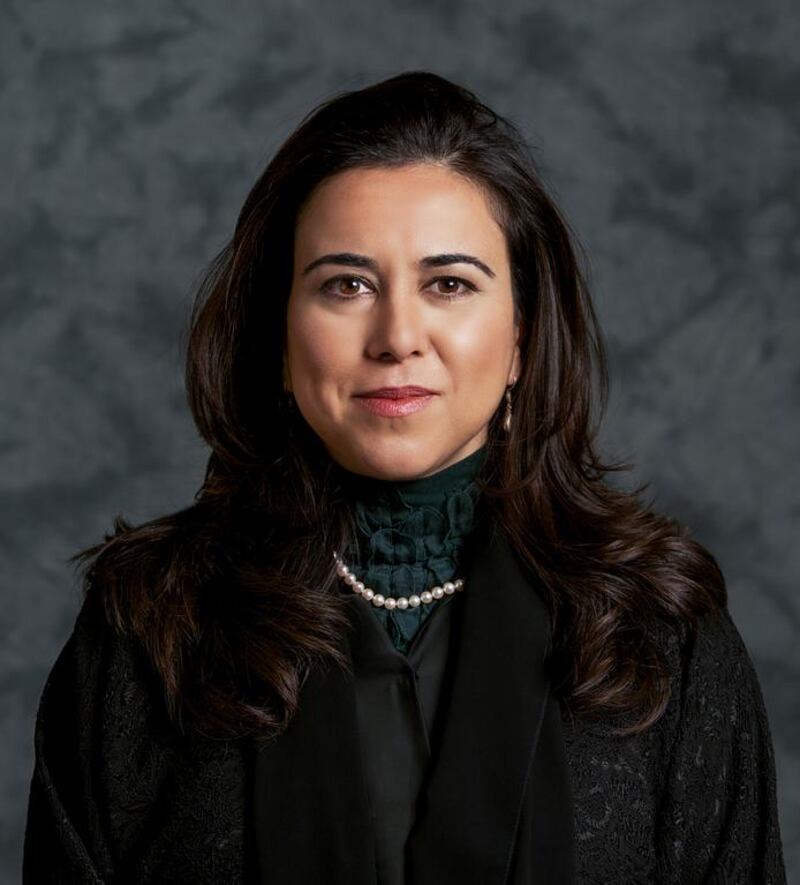ABU DHABI // The UAE’s ambassador to the United Nations is the second woman to be elected President of the UN Women Executive Board for 2017.
Lana Nusseibeh, who will be representing the Asia-Pacific Group at the UN in New York, said UN Women played a critical role within the UN and around the world as a dynamic and strong champion for women and girls.
"In the UAE, women are core partners in building and leading our prosperous society," she told The National. "And that is a story that we want to share around the world."
She said she aimed to demonstrate the key role that women play in senior leadership and decision-making in her homeland.
“Sheikh Zayed’s commitment to the empowerment of women and girls was key to the progress and development of the UAE,” Ms Nusseibeh said. “Central to this work was his wife, our First Lady, Sheikha Fatima bint Mubarak Al Ketbi, Mother of the Nation, who continues to be a tireless advocate promoting opportunity for women and girls everywhere. Their vision and ideals continue to guide us.”
Last October, the UAE launched a UN Women Liaison Office in Abu Dhabi — the first of its kind in the Gulf, playing a fundamental role in empowering local and regional women.
“Through this office, we aim to ... accelerate efforts to achieve gender equality and women’s empowerment around the world,” she said. “We also aim to showcase the UAE’s successful model as a nation to other countries.”
Today, women comprise 17.5 per cent of the Federal National Council in the Emirates and Dr Amal Al Qubaisi is its speaker, the first woman in the country and in the Arab world to lead a national assembly.
“Women constitute 28 per cent of the UAE Cabinet, holding diverse and important portfolios,” Ms Nusseibeh said. “With our strong record on women at home, the UAE has always looked for effective and constructive partners in the international and multilateral arena.”
She said 2017 will be a very important year for the board as it will adopt a new strategic plan for 2018 to 2021 and a new budget for 2018 to 2019. The plan will outline UN Women’s work in the next four years towards its goal of achieving gender equality by 2030, as well as supporting the gender-responsive implementation of all goals of the UN’s 2030 Agenda.
“Gender equality and women’s empowerment are critical to creating stable, prosperous and tolerant societies,” Ms Nusseibeh said. “These ideals are both moral and economic imperatives. Empowering women has a multiplier effect: it helps drive economic growth and development across the board. Over 50 per cent of the world’s population are women and girls and the UAE knows the importance of investing in women to maximise their full potential for our country’s development.”
She said, however, that there remains a long way to go in bringing many parts of the world around to this thinking. “Attitudes towards women in leadership or in non-traditional fields like science, technology, engineering and maths must change if we are to achieve these goals,” she added. “There are many countries who seek to implement these goals but lack the financing and capacity to do so. We must also continue to advocate for the education for all women and girls [as] it is often the single greatest factor that can improve a women’s status in society.”
Young Emirati women agreed. “As females, we have many positive attributes,” said Noor Shamma, an “Artrepreneur” who launched the Postcard initiative. “We are born leaders yet despite this innate ability to adopt a number of roles and lead from the front, female representation in the senior positions in the workplace lags behind our male counterparts. Fortunately so, we live in a country where there are governmental initiatives geared towards reaching an equilibrium.”
Mona Ali, a 33-year-old Emirati entrepreneur from Abu Dhabi, added: “She represents our country so to have such a high position and be a woman too really represents the UAE’s image. I am sure the next generation of Emirati women will follow in her footsteps and in the many strong women representing our country.”
cmalek@thenational.ae






